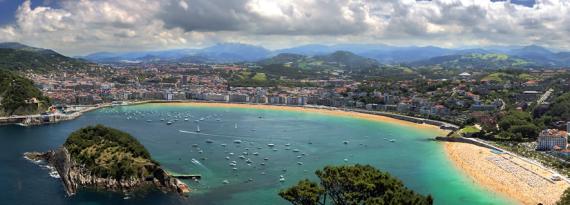Henry Staten is codirecting, with Maria Diaz Pozueta from Comparative History of Ideas (CHID), a study abroad program in Spain during spring quarter. This course, The Basques and the Glocal, focuses on the question of the resurgence of regional nationalisms in Europe, nationalisms threatening the unity of existing European nations even as those nations move toward the formation of the larger, transnational European Union. Professor Staten is teaching a course on national, tribal, and racial identity. The fundamental question of the course is, what is a nation? In exploring this question, the course will compare the situation of American Indians, African Americans, and Chicanos to that of the Basques, as well as placing the question of national identity in the context of the history of the modern concept of a nation, which dates only from the nineteenth century.
Participants in the program will also take another course, taught by Professor Xabier Irujo of the Basque Studies Program at the University of Nevada, Reno, on the history and culture of the Basques. The program will also include field trips to traditionally Basque villages; to the historically Basque city of Estella; the largest Basque city, site of the Guggenheim Museum Bilbao; and to Guernica, where participants will study, on site, the details of the bombing of Guernica by Hitler’s Luftwaffe—the bombing that inspired the famous painting by Picasso.
